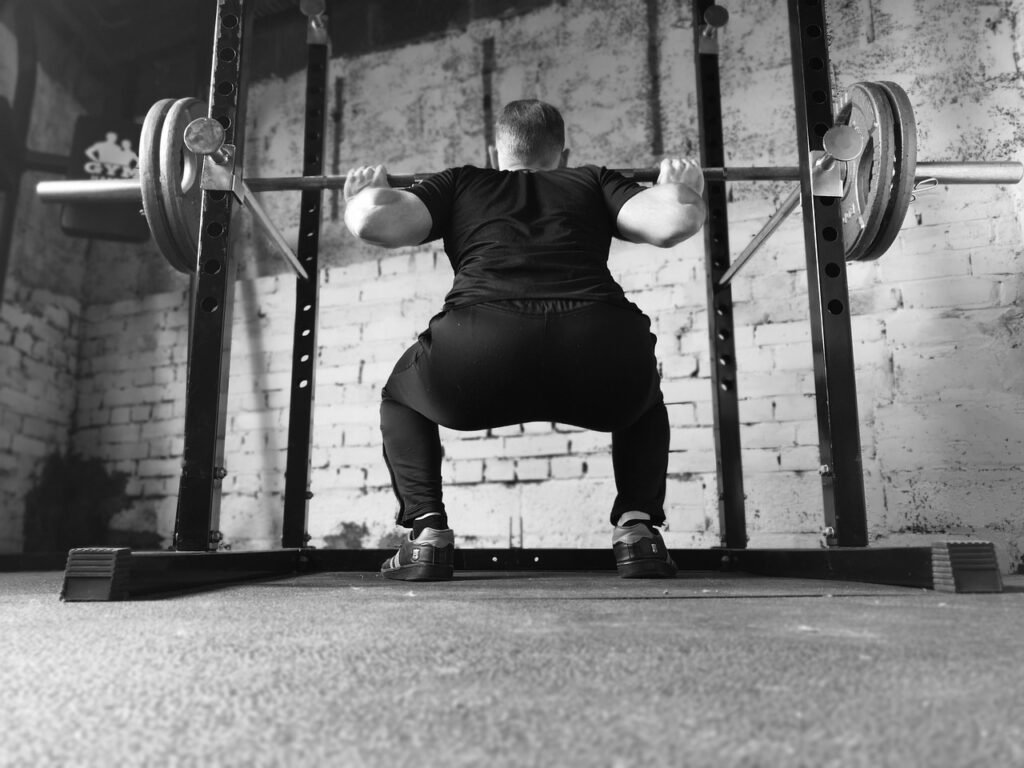
As any seasoned runner will tell you, a strong body is just as important as strong legs when it comes to achieving top performance. Strength training, often overlooked by runners, can help to significantly enhance your performance and reduce the risk of injury. Let’s delve into how strength training can aid runners and what the optimal training regime looks like.
The Importance of Strength Training for Runners

Contrary to popular belief, strength training is not all about pumping iron and building bulky muscles. It’s about fostering a healthy and resilient body that can stand up to the repetitive, high-impact nature of running. When it comes to running, think of your body as a well-oiled machine. If one part is weak, the entire machine struggles to perform at its best.
A robust strength training regimen is a game changer for runners. It’s a method of reinforcing your body to be more durable, thereby mitigating the potential for injuries that can sideline you from the track or trail. The wear and tear of constant running takes a toll on the body’s muscles, tendons, and ligaments. Strength training steps in here, helping to bolster these vital components, allowing them to better absorb the impact of each stride.
But there’s more. This form of training can supercharge your running efficiency and speed. Picture this: as your legs power through each mile, your core muscles are working tirelessly to keep you upright and maintain your balance. The stronger these muscles, the less energy you expend on stabilizing your body, which means more energy reserved for powering forward, faster and more efficiently.
So, to all runners out there: don’t just run, run strong! Embrace strength training not as a task but as a powerful tool that gears you towards better performance, enhanced speed, and a reduced risk of injury. After all, your goal isn’t just to cross the finish line, but to do so in the best shape possible. This is the essence of strength training for runners.
Optimal Strength Training for Runners

The question that’s likely popping in your mind now is: “What does the best strength training routine for a runner entail?” The answer lies in a comprehensive approach that pays equal attention to all vital areas of your body. Yes, it means more than just targeting your legs.
For runners, the key is to focus on exercises that enhance your stability, balance, and endurance. Training should be well-rounded, incorporating exercises for your core, legs, and upper body. Remember, your core isn’t just about abs – it includes your lower back, hips, glutes, and pelvic muscles too, all crucial to maintain balance and posture while running.
When it comes to legs, aim for exercises that boost your leg strength and flexibility. Squats, lunges, and calf raises are all excellent options that target multiple leg muscles. For your upper body, think of exercises like push-ups, pull-ups, or dumbbell rows that work your arms, shoulders, and back. These might not seem directly related to running, but a strong upper body contributes to overall endurance and efficiency.
Cardio exercises shouldn’t be completely tossed aside. Hill sprints, High-intensity interval training (HIIT), or circuit training can enhance your cardiovascular endurance, making your heart stronger and more efficient at pumping blood.
Don’t forget the flexibility and mobility exercises. These will help improve your range of motion, making your strides smoother and more fluid. Include dynamic stretches in your warm-ups, and static stretches in your cool-down routine.
Balance is vital, both in terms of physical equilibrium and in how you design your training program. You don’t want to overwork one part of your body at the expense of the others. The key is to harmonize different exercises, creating a balanced routine that fosters strength, flexibility, and endurance.
Remember, there isn’t a one-size-fits-all strength training program. Each runner is unique, with different strengths, weaknesses, and goals. The trick is to listen to your body, monitor your progress, and adjust your routine as necessary. The aim is not to morph into a bodybuilder, but to develop a stronger, more resilient runner’s body.
Ultimately, the best strength training program for runners is one that complements your running routine, targets all the necessary muscle groups, and contributes to a more powerful, efficient, and injury-resistant run. So, tie up those laces, pump up that energy, and get ready to embrace strength training on your journey to becoming a stronger, faster, and more unstoppable runner.
Incorporating Strength Training into Your Routine

Adding strength training to your running routine might seem like a mammoth task, but it doesn’t have to be. The secret lies in taking small, manageable steps and gradually incorporating them into your schedule. You could start by carving out time for two strength training sessions each week. This could either be on days when you’re not hitting the pavement or immediately following your run, depending on your energy levels and what works best with your schedule.
Picture it this way: your running days are when you push your body, testing your speed, endurance, and will. Your strength training days, on the other hand, are for fortifying your body, building resilience, and preparing it for the next run. It’s like yin and yang, complementing each other to form a complete, well-rounded training routine.
The beauty of strength training is its flexibility. You don’t necessarily need a gym or fancy equipment to get started. Many exercises can be performed right in your living room using just your body weight. From lunges and squats to push-ups and planks, these simple exercises can significantly contribute to your running performance.
If you’re unsure about how to start or worried about maintaining the right form, there are countless online resources, tutorials, and workout videos at your fingertips. Choose a pace and intensity level that feels comfortable for you, and gradually increase it as your strength and confidence grow.
Remember, consistency is key. Strength training is not a sprint; it’s more like a marathon. You might not see dramatic changes overnight, but rest assured, every rep, every set, and every drop of sweat is a step towards becoming a stronger, more resilient runner.
So, don’t be daunted. Lace up, gear up, and take that first step. As with every journey, the hardest part is often getting started. Once you embrace strength training as part of your routine, you’ll wonder how you ever ran without it. Trust the process, and keep going. The road to your best performance awaits.
Recovery and Nutrition

In the pursuit of optimal performance, it’s essential not just to train right, but to recover right too. Let’s talk recovery and nutrition, two pivotal pieces of the strength training puzzle for runners.
Following a tough strength training session, your body enters a phase of recovery and repair. This is where proper stretching comes into play. Devote time to stretch those worked muscles, easing any tension and promoting flexibility. Stretching helps to increase blood circulation, speeding up recovery and reducing muscle soreness. It’s your body’s natural way of saying thank you after a good workout.
But, the recovery process doesn’t stop there. Hydration is just as crucial. Water plays a vital role in maintaining the health of your cells and clearing out toxins from your body. It helps regulate your body temperature, lubricates your joints, and aids in nutrient transport. So, don’t skimp on the H2O! Make sure to replenish those fluids lost through sweat during your workout.
Now, let’s talk nutrition. Just as a car needs fuel to run, your body needs nutrients to function effectively. After a strength training session, your muscles are like sponges, ready to absorb nutrients and begin the repair process. This is where protein-rich foods step into the spotlight.
Protein, the building block of muscles, aids in the repair and growth of muscle tissues that have been broken down during your workout. Including protein in your post-workout meal can aid in muscle recovery and growth, helping you get the most out of your strength training. Consider lean meats, eggs, dairy products, legumes, or a protein shake to feed those hungry muscles.
Let’s not forget about carbohydrates. They are your body’s main source of energy and help replenish the glycogen stores depleted during your workout. So, pair that protein with some good quality carbs like whole grains, fruits, or vegetables.
Recovery and nutrition go hand-in-hand with your strength training regime. They play a crucial role in aiding your body to bounce back stronger and ready for the next running challenge. In essence, what you do after your workout is just as important as what you do during it. So, treat your recovery and nutrition with the same dedication you bring to your strength training, and watch your running performance soar to new heights.
Working with a Professional

Embarking on a new strength training routine can be a daunting task, but remember, you don’t have to do it alone. Consider the advantage of teaming up with a certified personal trainer or strength and conditioning coach. These professionals are like navigators for your fitness journey, helping you chart the best course for your individual goals and needs.
An experienced trainer can design a tailored strength training program that seamlessly integrates with your running schedule. They will take into account your current fitness level, your running goals, and any potential limitations or injury risks. The program they devise will focus on exercises that specifically target and strengthen the muscles you rely on as a runner.
The right trainer can also provide you with valuable insights on proper exercise technique, ensuring that you’re performing each movement safely and effectively. Correct form is crucial in strength training. Not only does it maximize the benefits of each exercise, but it also helps reduce the risk of injury.
Another great perk? Motivation and accountability. We all have those days where we struggle to find the energy or drive to hit the gym. On such days, knowing you have a session with your trainer can provide that much-needed nudge to keep you on track. Plus, your trainer will be there to celebrate your victories and help you navigate any challenges that may arise along the way.
Incorporating strength training into your running routine can revolutionize your performance, but it’s a journey that requires planning, commitment, and expertise. By enlisting the help of a professional, you can optimize your strength training regimen, stay motivated, and ultimately become a stronger, faster, more resilient runner. Don’t hesitate to reach out and explore this option. After all, every champion has a coach in their corner.

Pingback: 2 – 4 -7: Relentless Work Ethic – SelfWealthBoost